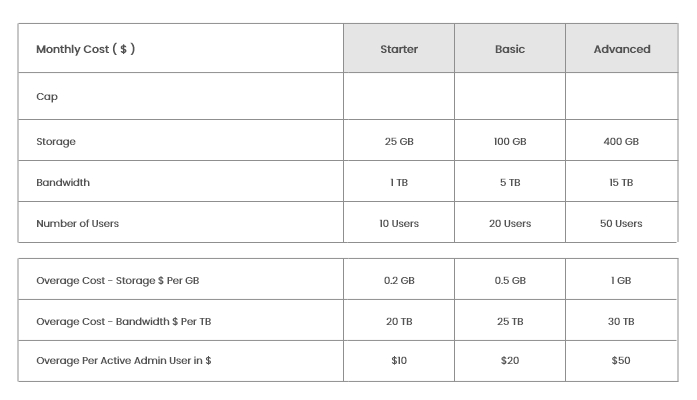



How to Audit Your Facebook Page in 5 Easy Steps
Facebook pages lack the same aesthetic concerns or capabilities as Instagram accounts, archiving Facebook content...
Do you want to clean up your Facebook business page? Do you want a better way to manage your content?
This article will teach you how to audit and update your Facebook business presence.
1. Keep a Complete Record of Your Facebook Page Content
Make a complete record of your organization's Facebook presence before you begin reviewing content and engagement on your business page. It is necessary to export page content and activity when:
- For legal or risk mitigation purposes, your organization requires an original record.
- Your team wishes to examine all page activity for reporting purposes.
You have two options for downloading page content from Facebook. You can export an HTML file if you need a visual record of your page. You can, however, export a JSON file if you intend to import the data into another platform for analysis.
In any case, downloading your page's content and other activities on a regular basis is a good idea. You can download a complete record of all Facebook business page activity or export specific weeks or months at a time.
2. Delete Old and Irrelevant Facebook Page Content
Archiving content on Instagram is already a fairly common practice. You may have decided to archive some of your Instagram content if you want to get your grid just right or if your brand is serious about creating the ideal aesthetic. The Instagram app makes it simple to review and retrieve previously saved content.
However, archiving is much less common on Facebook, and the option is not as easily accessible. Because Facebook pages lack the same aesthetic concerns or capabilities as Instagram accounts, archiving Facebook content may appear unnecessary.
So, why should you keep your Facebook content? Here are a few reasons to think about it:
- Some of the information on your page is out of date or irrelevant. You can archive content that no longer applies to keep your page uncluttered and easy to navigate.
- Certain posts and reels are no longer relevant, but you may need them in the future, such as when you relaunch a promotion. You can save content that you intend to restore.
- Your company is a government agency or another public institution that requires documentation of social media content. You can archive content rather than delete it.
It's worth noting that once you archive content from your Facebook business page, you won't be able to access insights. Plan to export insights before archiving, or, in an emergency, temporarily restore the content to view the original analytics.
3. Facebook Page Posts Can Be Hiding
It's simple to save content that your team has shared on your Facebook business page. But what about posts made by customers and followers on your page?
Customers and followers should ideally use Facebook's visitor post feature to share user-generated content or what they've created or accomplished with your products and services. You can, however, hide specific visitor posts if you discover that Facebook users are sharing harmful or spammy content on your page.
4. Hide anything harmful or abusive. Comments on a Facebook Page
Positive engagement, genuine questions, and constructive criticism should be the primary focus of comments on your Facebook page content. Most of the time, it's best to leave these comments alone and respond to them as soon as possible.
But what about off-topic participation, abusive comments, or replies that could harm your brand's reputation? Develop a policy for responding to this type of engagement with your team, and then implement it consistently.
In many cases, hiding abusive or harmful comments is a good idea to prevent others from reacting. Although you can delete comments, hiding them is usually a better option. When you hide comments, the original poster is unaware, and you have a record of their participation.
5. Combine Several Facebook Business Pages
Managing an organization's Facebook presence isn't always as simple as it appears. Business interests, marketing objectives, and management priorities can all shift over time, resulting in a disjointed Facebook strategy.
For instance, your company may have decided to create multiple Facebook pages to represent subsidiaries, flagship products, or other purposes. Alternatively, different departments may have created their own Facebook pages without developing a long-term marketing strategy.
Your organization may have determined that keeping these pages separate creates more work and compromises results over time. You may have also discovered that having multiple pages confuses your customer base. If having multiple business pages causes issues for your team and customer base, you should consider merging the two.
However, before you can merge two Facebook business pages, you must first demonstrate that they are essentially identical. Both Facebook pages must, in fact, have the same name and purpose. Here are a few more guidelines to remember:
- Both pages must be either classic or new pages experiences.
- Neither of these pages can be global.
- A verified page cannot be merged with an unverified page.
- In a Business Manager account, you cannot merge from the primary page.
Conclusion
It's simple to let your Facebook business page develop naturally. However, by taking critical steps such as removing irrelevant content and combining pages, you can improve your organization's online presence, maintain a strong brand reputation, and successfully direct customers to current promotions.
With Hocalwire's social media auto-posting feature, any news items and articles that match the specified rule will automatically post on the selected social media sites.
So that you can concentrate on producing high-quality content and expanding your revenue opportunities, you need to understand how we create technically sound websites that take care of the SEO and indexing requirements. If you're searching for one, schedule a demo of Hocalwire CMS by booking a time.

